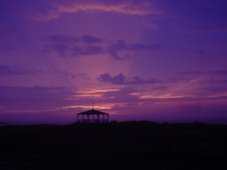"Hay in the barn is like money in the bank. It’s got to be done, and it’ll for sure feed the cows; but knowledge opens to a treasure of possibilities that extend way past this winter." My Dad
I grew up on a small, self-sustaining survivalist farm cut out of the harsh rocky Northern Adirondack Mountains. My kind and gentle Christian fundamentalist mother and pragmatic agnostic father had in common the belief that the world could go all to heck any time now. At that time my mom believed the prophesied End Times were upon us; my dad harbored memories of the Great Depression, and fear that such an event could once again freeze commerce and paralyze the country.
Both my parents came from small back-yard farmer families who for centuries in Nova Scotia and Massachusetts tilled small bits of land and raised chickens as a guarantee against abject poverty. My dad was an incredible man of great vision and imagination and a work ethic that still hasn’t quit. During the early years, there were summers of bad growing weather, and winters of 47 Ways to make tomatoes, beans, and eggs. Even before my mom discovered feminism, dad had me doing “boy things:” driving the tractor, birthing calves, learning how to fix the baler or the WWII 1-ton Ford with the straight 8. He’d talk to me about cause and effect while he explained that a carburetor needed only three things: air, fire, and fuel. If I could figure out which it had, I could figure out what wasn’t working, and fix it. Then he’d move on to a discussion of driving safety, or the three branches of government, or math. They all boiled down to causes and effects, he said, and it was knowledge, not simply belief, that allowed one to determine what was going on in the world.
Consistent through my life has been Dad’s core belief in and commitment to education, in the importance of experience, hands-on learning, and inquiry as the best way to learn and grow, as the only way to create new possibilities that could extend beyond what already existed. While my fundamentalist religion and rural educational system limited my worldview, my dad was helping me learn to question and challenge and risk. Later, reading bell hooks, I heard my dad in her words. "Urging all of us to open our minds and hearts so
that we can know beyond the boundaries of what is acceptable, so that we can think and rethink, so that we can create new visions. I celebrate teaching that enables transgressions--a movement against and beyond boundaries. It is that movement which makes education the practice of freedom." (Teaching to Transgress: Education as the Practice of Freedom. New York and London: Routledge, 1994, p. 12)
It was the instinctive combination of knowledge and hands-on practical experience of putting questions and experiences to work that allowed me the space to explore and question, and yes, transgress boundaries and preconceived notions of how the world worked. It is the creation of that space that we try to replicate in our religious education program for children and youth. We work to create a space in which all of our children can stretch and explore according to their own questions, and their own types of intelligence and learning style that we make a safe and sacred environment in which children can explore the biggest questions – Who am I? Who am I in this community? Why am I me and not someone else? What do I believe about life and love and the sacred?
These are not questions to ask lightly, or to ponder philosophically in a room of strangers, or an impersonal blog, but the work of community that I invite you to join as a teacher, mentor, or youth advisor. You may not be able to show a teen how to take a carburetor apart and then use it as a metaphor for government, but I’m sure you have another skill to use as touchstone for imagining. Perhaps you know music, or art, or building, or even haying. Unitarian Universalist curricula is written in a way that helps us to explore ideas and questions and religious with hands-on activities.
I believe that a desire and interest in hands-on experiential learning is more important than knowledge of world religions or philosophy or even Unitarian history. You can play catch-up for content, it's the talents you bring to the table that our children are waiting for. Join our younger students, digging your hands deep down in the dirt to explore the seeds that we are growing in community. As our youngest say when they light the chalice: We are Unitarian Universalists – With minds that think, and hearts that love, and hands that are ready to serve.
Please volunteer to teach, to mentor, to advise; to dig deep and explore in your congregation, be it Unitarian Universalist, or another liberal religious faith path. Call your Director of Religious Education to discuss opportunities that will be worth more than putting the hay in the barn for just one winter.
Friday, May 20, 2005
Subscribe to:
Post Comments (Atom)


1 comment:
PS. My mom is no longer a fundamentalist, but a delightful progressive United Methodist. she's also a tremendous folk artist and quilter.
http://www.gbgm-umc.org/saranacumc/
Post a Comment